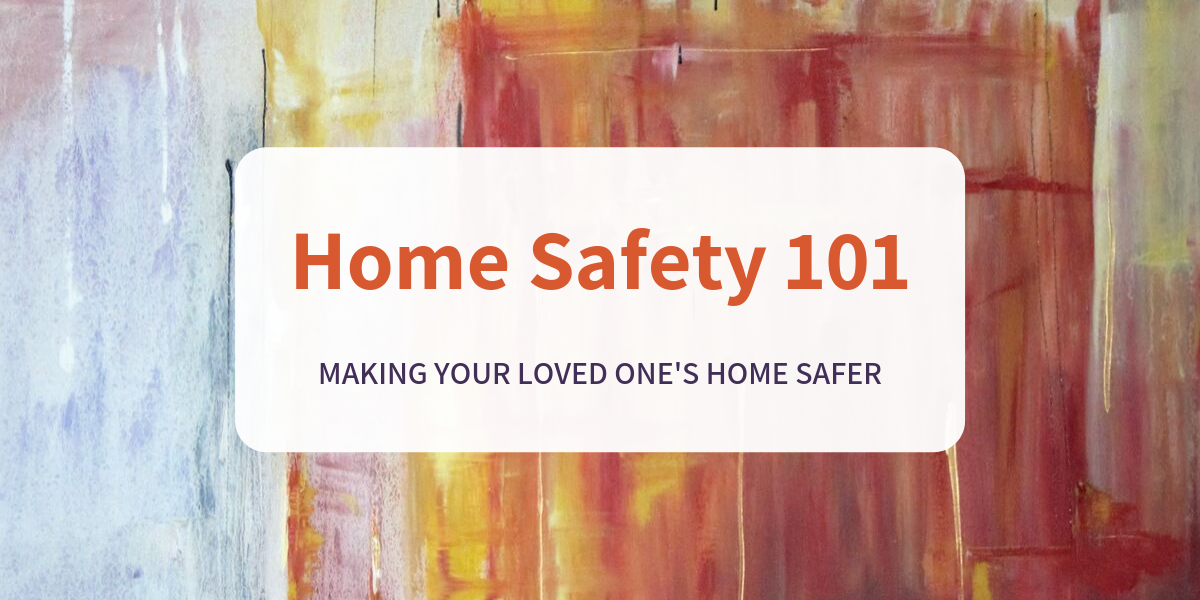Making Your Loved One’s Home Safer
If you are caring for a loved one with Alzheimer’s disease or other forms of dementia, home safety is critical. As the dementia progresses, your loved one’s memory and physical abilities change. As a result, the home your loved one has lived in for decades can quickly become a safety challenge.
The first step is to evaluate your loved one’s condition. Has he or she fallen before? Do they wander or get up at night? What are their habits? Based on behavior, modifications can be made to specific spaces.
Bathroom Safety
- Install a shower chair. Place grab bars where needed—by the toilet, near the bathtub and in the shower.
- Place non-slip mats in the shower and tub. You can also use them in front of the sink and toilet.
- Lock away hazardous products and appliances.
- Use child restraint caps on medication containers.
- Remove door locks to prevent your loved one from accidentally locking themselves in.
- Use nightlights.
A Safe Kitchen
- Install safety knobs on the stove.
- Lock up dangerous items such as alcohol, cleaning products, detergents, knives and scissors.
- Eliminate magnets shaped like food—your loved one may confuse them with something to eat.
Bedroom Tips
- Avoid falls by getting rid of throw rugs and anything else on the floor that is unstable.
- Try to have your loved one use the bathroom and take medication before going to sleep. This minimizes the need to get up in the middle of the night.
- Make sure the bed is at a convenient height for getting on and off.
Living Room Safety
- Eliminate clutter. Keep areas where people walk free of furniture and cords.
- Limit decorative objects that can be picked up and dropped, including plants.
- Mark glass doors and windows with decals at eye level.
- Eliminate throw rugs and make sure floors are never slippery.
- Chairs with arms make it easier to get up and sit down.
Outdoors
- Check all entrances and make sure they are easily accessible. This is especially important if your loved one uses a walker or a wheelchair. Add ramps and widen doorways when necessary.
- Clearly define the edges of steps by marking them with bright tape.
- Install handrails adjacent to steps.
- Keep hoses and other outdoor devices out of walking spaces.
Additional Suggestions
- Install smoke alarms
- Place lamps close to electrical outlets and cover unused outlets with childproof plugs.
- Use low-glare lights or dimmers because they are less agitating for people with limited vision.
- Make sure car keys are inaccessible.
In conclusion, paying attention to home safety can prevent accidents and help your loved one maintain his or her independence. Once you’ve made some changes, make sure to reevaluate the situation as the disease progresses. When mobility and balance begin to decline, modifications will need to be made in the home to reflect those needs. If you need assistance, an occupational therapist can point out safety hazards in the home and explain ways to minimize risk. Keep in mind, it is usually easier to change the environment than it is to change behavior.
If you have any questions or need any additional assistance while caring for your loved one, please give us a call at (850) 386-2778 or view our services.

